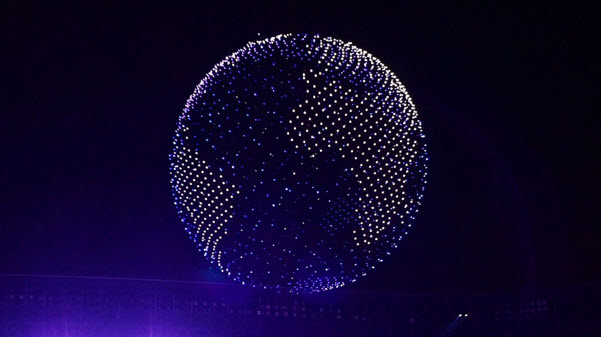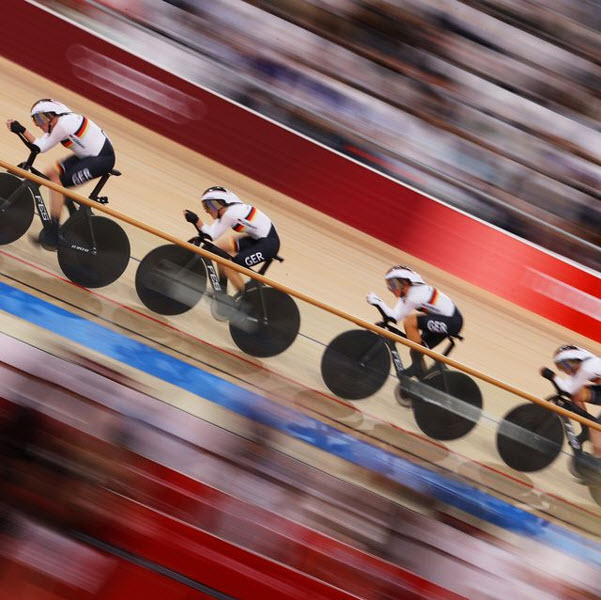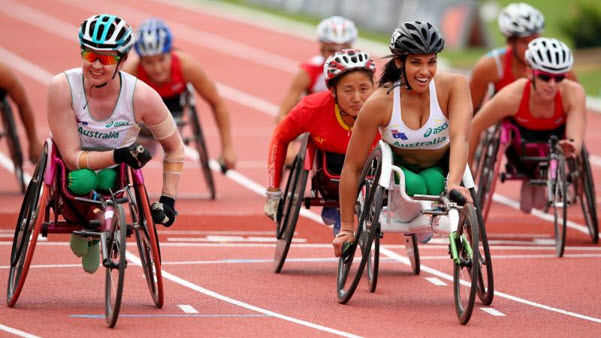As an educational tool for every discipline, sport has the power to change the world. In the attention economy in which we live, it is becoming increasingly more challenging to engage students in curricula. Research indicates that the reason students are disengaging is boredom, inability to link theory to practice, lack of context, and perceived difficulty of content. The dopamine fix of social media and the bells and whistles of online video games and Tik Tok are a tough match for traditional maths, literature and science curricula. But the exciting, unpredictable and universally relevant nature of sport presents a unique context through which lessons from maths and science to economics and ethics can be distilled.

The Olympics this week have offered plenty of life lessons, which could be enough to fill school curricula, and are probably more critical for survival than any other lessons. Much has been written of the soft skills gleaned through participation in sport, including critical leadership qualities of resilience, teamwork, compassion and commitment, and there is no doubt they are on full display during these Games and all sport. However, as a platform that can instantly resonate with youth, sport is also a ready-made curriculum across every subject domain.
As an educator, I know how difficult it is to engage young undergraduate tertiary students for any length of time, and can only imagine the challenges of holding the attention of 8 or 14-year-olds. But there is no reason that the hard or technical skills need to be communicated in a vacuum. The context of sport can bring to life otherwise dry subject matter and prove the relevance of the curriculum to the field, the arena and the podium. These lessons translate well to university and executives just as well as to primary and high schoolers. The pandemic-induced need to convert to virtual and hybrid learning environments only serves to elevate the need to provide more engaging educational content, and sport is the answer.

Starting with Maths, the analytics underpinning sport across high performance, injury prevention and fan engagement provide fascinating lessons for statistics, probability, modelling, data analysis, coding and prediction. The time, distance and speed relationship is right there up close and personal, while trajectories of discus, long jump and javelin can be measured and monitored and matched against historic data to detect outlying performances, like Emma McKeon’s. Add some icons like Jess Fox, Peter Bol, Patty Mills, Cate Campbell and Sam Kerr to these calculation scenarios, and students might be listening. And while we’re at it, throw in the incredibly analytical commentary of Ian Thorpe and we have a maths, sports science and psychology lesson for the ages. Once the Paralympics commence, we have more of this rich content to integrate.
The physics of the skate and BMX bowls, the surf, the velodrome, and pole vault are easily a handy backdrop in gravity, linear motion and waves. Designing a bowl or skate park would draw on design principles, creativity and physics, and why not analyse the amazing drone technology from the Tokyo opening ceremony from aeronautical physics, coding and robotics perspectives? Be inspired to build drones and design a Brisbane opening ceremony?
High performance provides such rich content in biotechnology, biomechanics, and wellbeing. Paralympic assistive technology is a great case study, as is studying the lifestyle and programs of Olympics teams to understand nutrition and best practice in relation to optimal wellbeing and performance. This fascinating part of sport may even extend to critically reading published science papers on topics like concussion in sport, transgender participation, doping practices drawing upon molecular biology, such as genetic doping. Understanding relationships between banned substances on the World Anti-Doping Code and performance enhancement can also be tested and discussed.
While we’re on anti-doping, why not throw in a legal studies or sports law lesson on legal, ethical and governance issues canvassing the strict liability doping regime and some of its unintended consequences, or spotlight diversity and inclusion in sport and human rights and safeguarding of minors now so critical in sport. The complexity of contracts and international conventions attached to mega-sporting events also provide rich insights into civil law, criminal law, negligence, anti-discrimination and human rights. Why can’t Tokyo cancel the Olympics? What is a make good clause and how are they relevant to host cities and sponsors? Why can’t athletes wear or mention their own sponsors during the event? Is there a duty of care for a COVID outbreak in the village? Is team selection fair? Should transgender athletes compete and how is this governed? How does an athlete prove they didn’t digest a banned substance? Why can’t there be advertising in the stadium? Why does the Russian Olympic Committee team exist for these Games? All critical ethical, legal and social questions that can be answered from the book of sport.

Sport diplomacy, whether demonstrated by collaborative negotiations by all participating countries, international sports federations and the IOC, or by diplomats in tracksuits highlighted by the sharing of a gold medal by two high jumpers, or the participation of a refugee team, provides a valuable lesson in international relations. Three different nationalities of athletes on a podium so visibly embody peace and celebration, and the logistical collaboration needed to permit the Games to proceed in Tokyo is a terrific study in not only diplomacy, but crisis management, that should be compulsory curricula. “Write an essay on how athletes or sport have promoted international relations, providing examples.” What a relevant and topical exam question. Mandela comes to mind, as does women’s sport and indigenous role models like Cathy Freeman and Patty Mills. Our Paralympians, like Kurt Fearnley and Ellie Cole are also diplomats in tracksuits worthy of study for their role in diversity and inclusion in sport and society.

As for English literature, that’s an easy one. A study of many athletes’ lives is more tangible than a review of Shakespearean tragedy. Sports books such as The Power of One, Open, Legacy and The Biggest Bluff are filled with wonderful lessons and can be critically analysed. Recording a story of an athlete or a sport history may also resonate, and the plethora of events in sport is easily a choose your own adventure, ensuring there is a story to spark everyone’s interest from chess to drone racing. History of sport through the ages, from Olympia in ancient Greece, to wartime Olympics and contemporary history of gender studies in sport and women’s rights to participate reveal humanity, history and complex social issues that apply equally today. How about an assessment task directed toward sports story telling through a choice of written genres whether novella or screenplay? The next “Drive to Survive” or “The Final Quarter?” An interview or podcast with Kurt Fearnley? Capturing Sam Kerr’s, Peter Bol’s or Cathy Freeman’s life stories? English lesson tick.
And the educational power of sport doesn’t end there. Moving to economics, let’s calculate the economic and social legacy of the Olympics, and undertake a cost benefit analysis, some macroeconomic modelling and draw on longitudinal data from other Games to determine the most and least successful Games, critique policy formulation and extrapolate to the New Norm Games in Brisbane for 2032. Lesson done. One word: Moneyball. I rest my case.
Foreign languages, no problem. While French is familiar as the language of diplomacy and international sport, the Tokyo Olympics has showcased indigenous language in the likes of Ruby Tui, the New Zealander Rugby sevens star interviewed by the BBC post game. The visibility of this gesture resonates and normalises the importance of preserving our indigenous languages, culture and identity. What a memorable case for integrating our indigenous language into everyday class, work and life.
Business lessons abound in world sport, given its commercialised nature. Studying marketing of sport and sporting events, including topics of fan engagement, branding, sponsorship, operations, logistics and media just about covers that base. And that’s before entrepreneurship and business models associated with the success stories of the burgeoning sportstech sector have been studied.
While these sporting lessons can fill out an exciting and engaging curriculum, the leading story in sport is just that- leadership education is accessible in athlete humility in victory and defeat, courage in a fallen athlete finishing the event, sharing a. gold medal, the pride in flag bearers, and the honesty of perseverance. Let’s never forget the grit of these athletes in waiting 5 years to compete, in tough COVID-restricted conditions only to quarantine. The stories give us all optimism and perspective, and hopefully motivation to engage with sport. So why not integrate these lessons into our classrooms?
What a powerful educator sport is.
About the Author
Professor Sarah Kelly, renowned for her global academic, leadership and governance expertise across education and sports management, drives forward-thinking initiatives to the world stage. A distinguished ‘prac-academic’, commercial lawyer and champion for inclusivity, Sarah leads with innovation and insight. For exclusive updates on the latest in sport, management, leadership, education, innovation, and research, subscribe at DrSarahKelly.com.au
